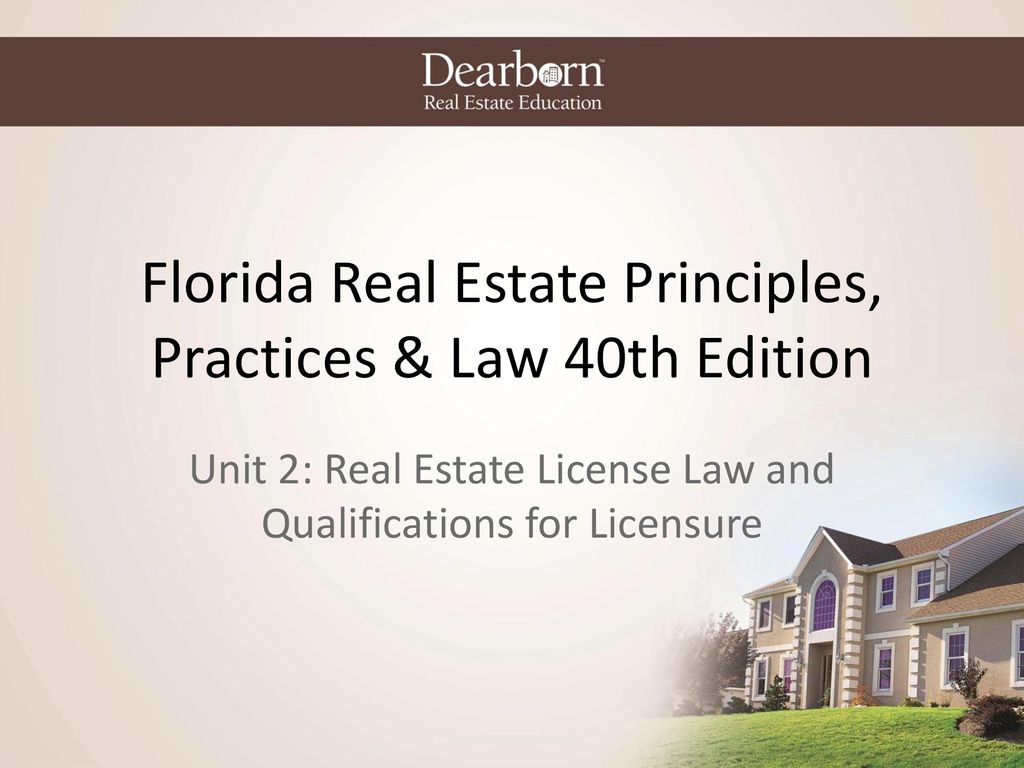Florida Real Estate License Law: Understanding Its Primary Purpose and Consumer Protection Framework

Understand Florida real estate license law
Florida real estate license law serve as the cornerstone of consumer protection and professional regulation within the state’s dynamic property market. The primary purpose centers on safeguard public interests while establish comprehensive standards for real estate professionals operate throughout Florida.
The legislation create a robust framework that ensure qualified individuals handle real estate transactions, protect consumers from potential fraud, misrepresentation, and incompetent practices. This regulatory structure maintains market integrity while foster professional excellence among licensed practitioners.
Core consumer protection objectives
Consumer protection stand as the fundamental drive force behind Florida’s real estate licensing requirements. The law establish multiple layers of safeguards design to protect buyers, sellers, landlords, and tenants from unscrupulous or unqualified individuals attempt to conduct real estate business.
The licensing framework require comprehensive education, examination, and ongoing professional development to ensure practitioners possess necessary knowledge and skills. This educational foundation cover contract law, property rights, financing, ethics, and state specific regulations that forthwith impact consumer welfare.
Background checks and character evaluations form another crucial protection element. The law require applicants to demonstrate trustworthiness and integrity before receive authorization to handle significant financial transactions on behalf of others.
Financial security measures
Florida’s licensing law incorporate several financial protection mechanisms for consumers. Licensed professionals must maintain errors and omissions insurance, provide coverage when mistakes or oversights occur during transactions. Additionally, the recovery fund offer compensation to consumers who suffer financial losses due to licensed practitioners’ violations.
Escrow account regulations ensure proper handling of client funds, require strict accounting procedures and regular audits. These measures prevent commingling of client money with personal or business funds, reduce opportunities for misappropriation.
Professional standards and competency requirements
The law establish comprehensive competency standards that ensure merely qualified individuals receive licenses to practice real estate. These requirements encompass both initial qualification criteria and ongoing professional development obligations.

Source: dxobpwnty.blob.core.windows.net
Pre licensing education requirements mandate completion of approve coursework cover essential real estate principles, practices, and legal requirements. The curriculum address property law, agency relationships, contract preparation, fair housing regulations, and ethical conduct standards.
State examination requirements test applicants’ knowledge and understanding of real estate principles and Florida specific laws. The examination process ensure candidates possess sufficient competency before enter professional practice.
Continue education and professional development
Ongoing education requirements maintain professional competency throughout licensed practitioners’ careers. Regular continue education ensure professionals stay current with evolve laws, market practices, and industry standards.
Specialized endorsements and certifications allow practitioners to demonstrate expertise in specific areas such as property management, appraisal, or commercial transactions. These additional qualifications provide consumers with confidence in their choose professional’s specialized knowledge.
Regulatory oversight and enforcement
The Florida real estate commission provide regulatory oversight, ensure compliance with licensing laws and professional standards. This administrative body investigate complaints, conduct disciplinary proceedings, and maintain public records of licensee status and disciplinary actions.
Enforcement mechanisms include license suspension, revocation, fines, and mandatory additional education. These tools allow regulators to address violations while provide opportunities for rehabilitation and improvement.
Regular audits and inspections ensure ongoing compliance with trust account management, advertising standards, and record keep requirements. This oversight create accountability and maintain public confidence in the regulatory system.
Complaint investigation process
The law establish formal procedures for investigate consumer complaints against licensed professionals. This process provide accessible recourse for consumers who believe they’ve been harm by licensee conduct.
Investigation procedures ensure thorough examination of allegations while protect due process rights for accuse licensees. The system balance consumer protection with fair treatment of licensed professionals.
Market integrity and fair competition
Florida’s licensing law promote market integrity by prevent unqualified individuals from engage in real estate activities. This protection maintain professional standards while ensure fair competition among qualified practitioners.
Advertising regulations prevent misleading or deceptive marketing practices that could harm consumers or create unfair competitive advantages. These standards ensure accurate representation of services, qualifications, and property information.
Agency relationship requirements mandate clear disclosure of representation arrangements, prevent conflicts of interest and ensure consumers understand their agent’s obligations and loyalties.
Prevent unauthorized practice
The law understandably defines activities requirelicensee and establish penalties for unauthorized practice. This framework ppreventsunqualified individuals from perform complex real estate functions that require specialized knowledge and training.
Exemptions for certain activities, such as property owners sell their own property, balance regulatory protection with individual property rights. These cautiously craft exceptions maintain appropriate oversight without unnecessarily restrict legitimate activities.
Economic impact and market stability
Professional licensing contribute to overall market stability by ensure qualified practitioners handle real estate transactions. This competency requirement reduce transaction failures, disputes, and legal complications that could destabilize local markets.

Source: allaboutlawyer.com
Consumer confidence increases when buyers and sellers know their representatives meet establish professional standards. This confidence encourages market participation and support healthy transaction volumes.
Standardized practices and procedures create efficiency in real estate transactions, reduce costs and delays. Professional competency requirements ensure practitioners can navigate complex legal and financial requirements efficaciously.
Support economic development
Reliable real estate services support broader economic development by facilitate property transactions that enable business expansion, residential development, and investment activities. Professional licensing ensure these critical services meet quality standards.
The regulatory framework attract reputable professionals to the industry while discourage those who might engage in fraudulent or incompetent practices. This selection effect improves overall service quality and market reputation.
Adaptation to change market conditions
Florida’s licensing law include mechanisms for adapt to evolve market conditions and emerge challenges. Regular review and updating of regulations ensure continued effectiveness in protect consumers and maintain professional standards.
Technology integration requirements keep pace with digital transformation in real estate services. Electronic signature regulations, online advertising standards, and digital record keep requirements reflect modern business practices while maintain consumer protection.
Emerge practice areas, such as short term rental management and commercial real estate investment trusts, receive appropriate regulatory attention to ensure consumer protection extend to new market segments.
Interstate commerce considerations
The law address interstate real estate activities while maintain Florida’s regulatory authority over transactions within state boundaries. Reciprocity agreements with other states facilitate professional mobility while preserve local consumer protection standards.
Multi state transaction requirements ensure appropriate oversight when Florida properties involve out of state parties or when Florida licensees work with clients from other jurisdictions.
Implementation and compliance framework
Effective implementation require clear guidance for both licensees and consumers regard rights, responsibilities, and procedures. The law establish comprehensive compliance frameworks that support understanding and adherence to regulatory requirements.
Educational resources and guidance documents help licensees understand their obligations while provide consumers with information about their rights and available protections. This transparency support effective regulation and informed participation in real estate markets.
Regular training programs for regulators ensure consistent and effective enforcement of license laws. Professional development for regulatory staff maintain expertise necessary for address complex cases and emerge issues.
The primary purpose of Florida real estate license law encompass comprehensive consumer protection, professional competency assurance, market integrity maintenance, and regulatory oversight. This multifaceted approach creates a robust framework that serve both public interests and professional standards, support a healthy and trustworthy real estate market throughoutFloridaa.






